Hannukah Songs
Holiday Carols and Songs for Various Voicings
Sacred SATB
Secular SATB
Sacred TTBB
Secular TTBB
Sacred and Secular SSAA and Treble Voices
Solo Voice
Welcome and Introduction
Welcome to the Holiday Store: a Miscellany of holiday music, sacred and secular, for various voicings, including a music theatre piece for young audiences and a holiday CD.
For published octavos order copies directly from the publisher. For unpublished or out of print octavos, order directly from the composer via the Contact Page.
Creative Commons Licensing
Please note that all of my works are protected by Creative Commons licensing: Attribution-No Derivs CC BY-ND LEVEL LICENSE
For any of my works with text by Jason Charnesky: Attribution-NonCommercial-Share Alike CC BY-NC-SA LEVEL LICENSE

Two Invocations: Kyrie and Agnus Dei for SATB and keyboard or chamber orchestra.
The Youtube video of the performance of Two Invocations is from Lviv, Ukraine and I now dedicate it to the people of Ukraine who are suffering so much.
In 2017 I was fortunate to have my Two Invocations for choir and orchestra accepted for the Sacrarium workshop in Lviv, Ukraine with culminating performances by the Lemburg Chamber Orchestra and the Lviv Chamber Choir, professional organizations that gave stellar performances of my two sacred works in the historic Jesuit Church. It was thrilling to be in Lviv (motto: Live it up in Lviv) then, especially as the first flush of independence was still inspiring and exciting the people of Ukraine. So now, like most of the world, I am appalled by the invasion by Putin and his armies. I dedicate the video to the people of Ukraine. May this wonderful country and its beautiful and talented musicians continue as independent and free.
View SATB and keyboard score. View orchestra score.
Listen and watch the live performance in Lviv.
Christmas for King Midas Words by Jason Charnesky.
One act opera for Young Audiences (middle/high school)
Just before Christmas, Miss Pettigrew is aghast to find her students would rather be at the mall shopping. She has them enact the fable of King Midas whose love for gold turns his wife, son, and his beloved nachos to solid gold.
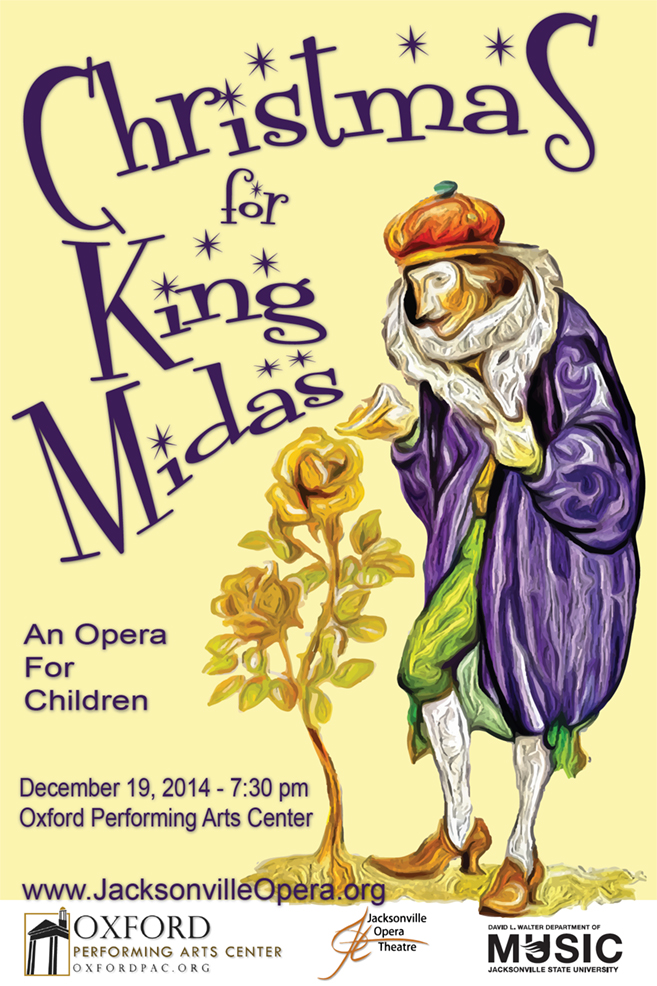
Nan/Angel, high soprano
Kathy/Princess Dividend, soprano
Miss Philomena Pettigrew, soprano or mezzo-soprano
Sissy/King Midas, mezzo-soprano or soprano
Rose/Rosebush, mezzo-soprano or contralto
Dan/Prince Vague, high baritone or tenor
Accompaniment: piano or chamber orchestra
Duration: 45 minutes
Read Notes and Orchestration.
View Piano Vocal Score.
Listen to midi of Part One (pages 1-10).
Listen to midi of Part Two (pages 11-20).
Listen to midi of Part Three (pages 21-30).
Listen to midi of Part Four (pages 31-41).
Listen to midi of Part Five (pages 42-50).
Listen to midi of Part Six (pages 51-60).
Listen to midi of Part Seven (pages 61-76).
Listen to midi of Part Eight: Finale (pages 77-82).
Read article in The Chanticleer, Jacksonville State University.
Commission and Premiere: Jacksonville State University Opera Theatre,
Nathan Wight, Director; Jeremy Benson, Conductor; September 13, 2014.
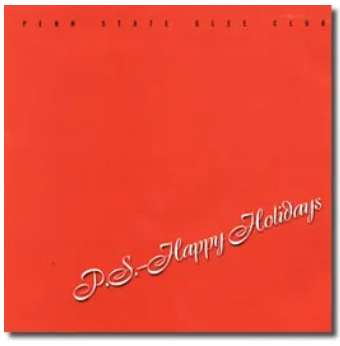
P.S. – Happy Holidays Penn State Glee Club, Bruce Trinkley, Conductor
Click here to order the CD from the Merchandise Page of the Penn State Glee Club website.
Click here to view the tracks on the CD.
CD design and graphics by Ken Keagy, designer of this entire website.
Hannukah Songs
Contact the composer for review copies and midi of the following.
O Mighty Hand Lyrics and music by Maurice Goldman (1910–1984). Chanukah song arranged for TTBB chorus piano or organ.
Holiday Carols and Songs for Various Voicings
Adeste Fideles Carol arrangement for SATB, SSAA or TTBB chorus acappella.
Attributed to J. F. Wade (1711-1786), an English Catholic hymnist and noted Jacobite who became known as the “father of the English plainchant revival.”
A traditional but also fresh harmonic take on the venerable classic carol. Verse 1 in Latin, verses 2 and 3 in English.
View SATB score. View SSAA score. View TTBB score. Listen to SSAA midi.
Listen to the TTBB version sung by The Penn State Glee Club on P.S. – Happy Holidays.
All Through the Night Welsh folksong arranged for SATB chorus unaccompanied. Also available for SSAA and TTBB voices.
Arranger’s note: The sustained pitches replicate the lingering sonorities in a cathedral or very resonant space.
The tune to All Through the Night was first recorded in Edward Jones' Musical and Poetical Relics of the Welsh Bards (1784). The most commonly sung Welsh lyrics were written by John Ceiriog Hughes (1832-1887), and have been translated into several languages, including the familiar English version by Harold Boulton (1859–1935).
View SATB score. View SSAA score. View TTBB score.
Listen to The Penn State Glee Club on P.S.- Happy Holidays.
Ave Maria by Anton Bruckner (1824-1896) Arranged for SATB or TTBB chorus and optional keyboard. Boosey and Hawkes
Arranger’s Note: This is the third of three settings by Anton Bruckner of the Ave Maria. Written in 1882 in Vienna, it was scored for solo voice and organ, and owes its origin and extraordinary two-octave vocal range to Bruckner's infatuation with a young woman who commanded an excellent contralto voice. The piece may be performed either a cappella or accompanied by organ or keyboard, as Bruckner originally intended.
View SATB score and notes. View TTBB score sample. Listen to midi.
Christmasse in England Two Secular Holiday Choruses
1. Ceremonies for Christmasse For SATB and TTBB Voices and Piano.
Poem by Robert Herrick (1591-1674) from
Hesperides (1648).
For the Huntington Men's Chorus, Thomas Jones, Director
Herrick’s carpe diem poem celebrates English holiday traditions, the log on the fire, the food – “Mince-Pie and Plums” – and the conviviality, with echoes of 18th century song and modern-day Caribbean calypso!
View the SATB score. View the TTBB score. Listen to midi.
My merrie, merrie boys,
The Christmas Log to the firing,
While my good dame, she
Bids ye all be free,
And drink to your heart's desiring.
With the last year's brand
Light the new block, and
For good success in his spending,
On your psalteries play,
That sweet luck may
Come while the log is a-teending.
Drink now the strong Beer,
Cut the white loaf here,
The while the meat is a-shredding;
For the rare Mince-Pie,
And the Plums stand by,
To fill the Paste that's a kneading.
2. The Knighting of the Sirloin of Beef by Charles the Second For SATB and TTBB Voices and Piano.
Lyrics Anonymous from Christmas (1907) Edited by R. H. Schauffler (1879-1964).
The anonymous, outrageous and punning lyrics celebrate more of the British holiday tradition combining culinary and courtly traditions in a rollicking secular celebration. Tuneful, zestful, and again, convivial.
View the SATB score. View the TTBB score. Listen to midi.
And soon each found relief;
Whilst Charles his royal trencher piled
From one huge loin of beef.
Quoth Charles, "Odd's fish! a noble dish!
Ay noble made by me!
By kingly right, I dub thee knight --
Sir Loin henceforward be!"
And never was a royal jest
Received with such acclaim:
And never knight than good Sir Loin
More worthy of the name.
Away in a Manger Carol arrangement for SATB, SSAA or TTBB and piano or organ based on the two familiar tunes.
Lyrics by William J. Kirkpatrick (1838-1921).
View SATB score. View SSAA score. View TTBB score. Listen to SATB midi.
Glory be to God on high Canon for 3 voices by Dr. William Boyce (1711-1779)
From A Collection of Catches, Canons and Glees, known as the Warren Collection, containing the best compositions sung by the London Catch Club from 1762 to 1793. Although originally intended to be sung by men’s voices in a secular setting, the canon is also appropriate for use in church, sung by the TB choir or the congregation.
View score. Listen to the Penn State Glee Club sing Glory be to God on high P.S. – Happy Holidays
An Irish Lullaby (Shoheen Sho) arranged for SATB. Also available for TTBB. Alfred Publishing 27209
Alfred tells us: An alternate text (included in the publication) makes this stunning lullaby from Ireland appropriate for Christmas or at any time of year. Sustained a cappella phrases create expressive moments, and brief dissonances resolve beautifully every time. Easy on the voice and keen on the ear, this is one to sing every day as a warm-up selection, or as a “show off” piece at a moment's notice. Lovely.
View SATB score. Listen. Download TTBB score.
O You Lovely Jesus Child (O du Liebes Jesu Kind) by Anton Bruckner (1824-1896) Arranged for TTBB and optional keyboard. English version by Jason Charnesky.
Performance Note: The piece may be sung twice, the first time in English, the second in German, or vice versa.
A beautiful lullaby for any season, but especially Christmas.
View score. Listen to midi.
The Praise of Christmas English secular carol for SATB, SSAA and TTBB chorus acappella with solo voice.
YR4904
From The Oxford Book of Carols.
“The first two verses (of which 12 exist) are by Tom Durfey (1653-1723), the dramatist and friend of Charles II, in his Pills to Purge Melancholy.” Durfey was important to the development of the ballad opera, the precursor to the modern musical comedy; he wrote 10 of the songs in John Gay’s The Beggar’s Opera (1728). (The arranger includes this information since his first theatre piece was The Bawd’s Opera, the Columbia Varsity Show of 1966, which was written in imitation of an 18th Century ballad opera but with contemporary political and social allusions.)
The traditional tune of The Praise of Christmas is a perfect setting of Durfey’s text with its elegant interior rhyme scheme. The text praises the joys of conviviality and community. Perfect for all holiday celebrations, especially the winter solstice and multicultural and ecumenical observances.
View SATB score. View SSAA score. View TTBB score sample. Listen to SSAA midi. Listen to TTBB version sung by The Penn State Glee Club with Kevin McMahon, tenor, on P.S.– Happy Holidays.
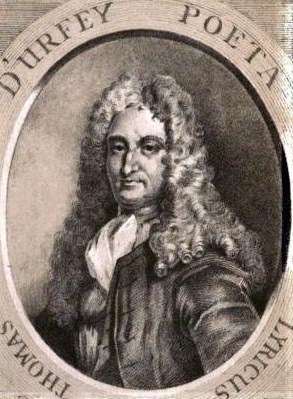
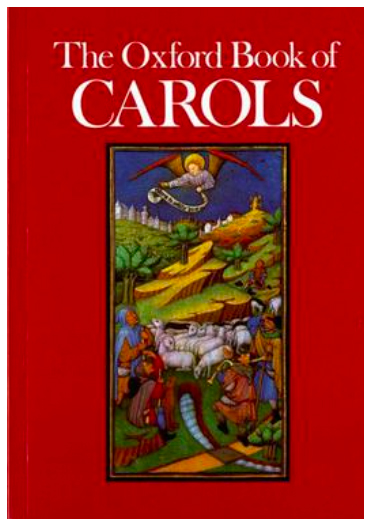
All hail to the days that merit more praise
Than all the rest of the year,
And welcome the nights that double delights
As well for the poor as the peer!
Good fortune attend each merry man’s friend
That doth but the best that he may,
Forgetting old wrongs with carols and songs,
To drive the cold winter away.
When Christmas tide comes in like a bride,
With holly and ivy clad,
Twelve days in the year much mirth and good cheer
In every household is had.
The country guise is then to devise
Some gambols of Christmas play,
Whereat the young men do best that they can
To drive the cold winter away.
'Tis ill for a mind to anger inclined
To think of small injuries now;
If wrath be to seek, do not lend her thy cheek,
Nor let her inhabit thy brow.
Cross out of thy books malevolent looks,
Both beauty and youth's decay,
And wholly consort with mirth and with sport,
To drive the cold winter away.
This time of the year is spent in good cheer,
And neighbours together do meet,
To sit by the fire, with friendly desire,
Each other in love to greet.
Old grudges forgot are put in the pot,
All sorrows aside they lay;
The old and the young doth carol this song,
To drive the cold winter away.

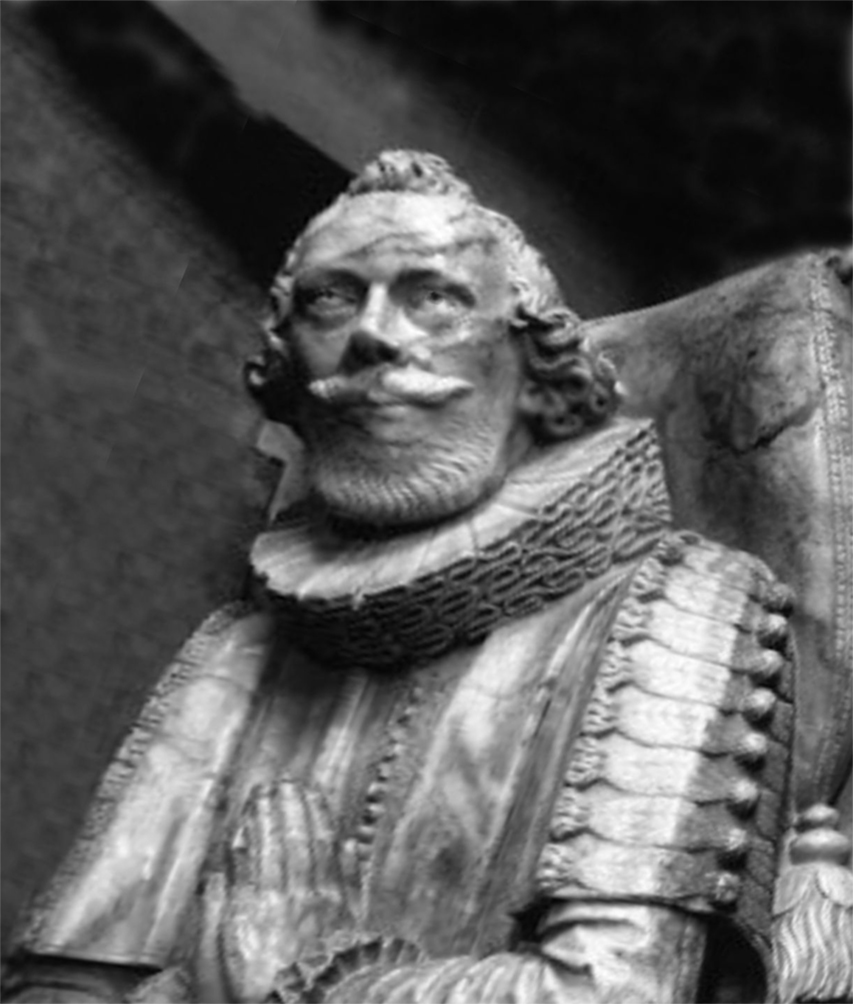
Remember, O Thou Man For SATB and TTBB chorus a cappella.
Carol by Thomas Ravenscroft (1588-1635) from Melismata, Musical Phansies fitting the Court, Citie and Countrey Humours (London,1611).
The two images on the right illustrate the breadth and range of the life and career of Ravenscroft, collector of British folk music and songs, and sacred composer and chorister at St. Paul’s Cathedral in London.
The obsessive repetition of the words and music in Remember, O Thou Man perfectly convey the gravity and eloquence of the message. The arrangement is straightforward and direct and perfect for small as well as large church and school choirs. Especially effective in Lessons and Carols services.
View SATB score. View TTBB score. Listen to SATB midi.
The angels all did sing,
O thou man, O thou man,
The angels all did sing
on Sion hill:
The angels all did sing
Praises to our heav'nly King,
and peace to all living
with right good will.
To Bethlem did they go,
O thou man, O thou man,
To Bethlem did they go
this thing to see.
To Bethlem did they go
to see whether it was so, whether Christ was born or no
to set us free.
Silent Night arranged for SATB or TTBB and organ or piano with optional congregational singing.
This the most beloved carol of all, with music by Franz Gruber (1787-1863), has been arranged with fresh evocative harmonies. The first verse is sung by a soloist or semi-chorus in German with the chorus supporting. Verses two and three may be sung in unison by the congregation in English. The arrangement is especially appropriate for the men in the choir on Christmas eve and throughout the holiday season.
Download SATB score. Download TTBB score.
Listen to the Glee Club sing Silent Night with John Kenney, soloist, and organist June Miller on P.S.– Happy Holidays.
The Sussex Carol Arranged for SATB, SSAA and TTBB unaccompanied.
The Sussex Carol is a sonorous and noble a cappella version of the familiar English carol employing simple canonic variations to embellish the modal tune. Appropriate for the choir on Christmas eve and throughout the holiday season.
View SATB score. View SSAA score. View TTBB score. Listen to midi.
To hear the news the angels bring
News of great joy, news of great mirth,
News of our merciful King's birth.
Then why should we on earth be sad,
Since our Redeemer made us glad,
When from our sin he set us free,
All for to gain our liberty?
When sin departs before his grace,
Then life and health come in its place;
Angels on high with joy may sing,
All for to see the new born King.
All out of darkness we have light,
Which made the angels sing this night:
“Glory to God and peace to all.
Now and forevermore. Amen.”
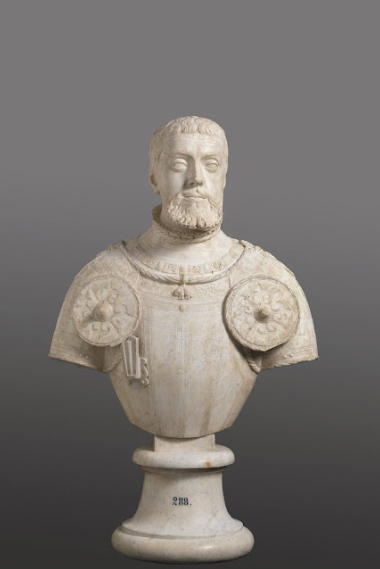
Take Joy SATB or TTBB chorus and keyboard or chamber orchestra. Text by Fra Giovanni (c.1433-1515). A Letter to the Most Illustrious the Contessina Allagia degli Aldobrandeschi, Written Christmas Eve Anno Domini 1513.
Commission and Premiere: Federal City Performing Arts Chorus 1987.
Revised version: Penn State Glee Club and Women's Chorus, December 6, 1992.
View SATB score. Listen to midi.
but there is much that, while I cannot give, you can take.
No heaven can come to us unless our hearts find rest in it today.
Take Heaven.
No peace lies in the future which is not hidden in the present moment.
Take Peace.
The gloom of the world is but a shadow; behind it, yet within our reach is joy.
Take Joy!
And so, at this Christmas time, I greet you, with the prayer that for you,
now and forever, the day breaks and the shadows flee away.
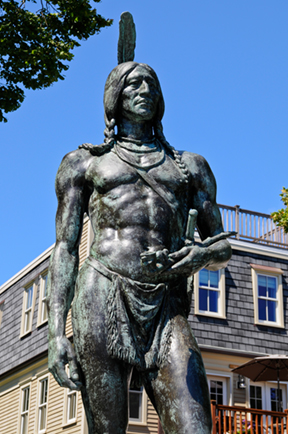
Plymouth, Massachusetts.
Two Thanksgiving Songs
Traditional songs for the Fall festival of Thanksgiving, marking the first celebration of the Pilgrims in the Plymouth Colony when the Native Americans, led by Massasoit (c.1581-1661), the Great Sachem, helped the Pilgrims survive the winter. Ideal for church or community celebrations.
Carol of Beauty (Praise Ye the Lord) SATB, SSAA or TTBB with piano or organ. Old French melody with words by Steuart Wilson (1898-1966).
Dedicated to Suzanne Roy with gratitude and affection.
The sturdy hymn is given a festival setting easily accessible to amateur choirs. Lots of unison and two-part writing with fresh harmonies. A fine Thanksgiving anthem.
View SATB score. View the SSAA score. View TTBB score. Listen to midi. Listen to the Royal Choral Society.
Prayer of Thanksgiving (
We Gather Together) SATB, SSAA or TTBB with piano or organ. Old Dutch melody. Lyrics by Dr. Theodore Baker (1851-1934).Arranged for and dedicated to Arietta Women's Chorus, Jan Mianulli, Conductor. This grand old hymn tune has long been a staple of Thanksgiving celebrations.
View SATB score. View score. View TTBB score. Listen to midi. Listen to the Joslin Grove Choral Society.

Three Venezuelan Christmas Carols Arranged for SATB and piano or marimbas/bass. Also available for TTBB and piano or marimbas/bass. Preview SATB score, listen and purchase: GIA Publication G-4316
1. La Jornada (The Journey) View TTBB score. Listen to TTBB version
2. Como busca el tierno infante (As the frightened baby Jesus)
View TTBB score. Listen to TTBB version.
3. Cantemos (We are singing) View TTBB score. Listen to TTBB version.
The TTBB recordings are by the Penn State Glee Club from P.S. Happy Holidays Three lyrical South American carols from the classic Walter Ehret (1918-2009) collection,
The International Book of Carols with text in Spanish and English. Perfect for Christmas Eve celebrations with piano or two marimbas and string bass. The SATB and TTBB versions are equally effective.
Villancico Spanish Christmas carol arranged for SATB, SSAA and TTB and piano.
SATB: Alfred Publishing 23974. SSAA: Alfred Publishing 23975. T(T)BB: Alfred Publishing 23974.
Alfred says: This stylish arrangement of a traditional Spanish carol includes an effective optional English text and is a unique choice for men's, women's, and mixed ensembles. Skillfully incorporates rich choral harmonies and captivating rhythms with multicultural flavor. Distinctive repertoire for holiday programs. View and listen to score sample.
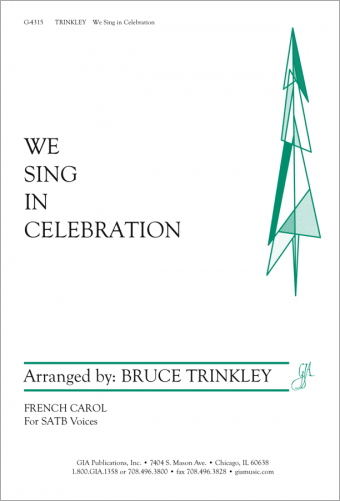
We Sing in Celebration French carol arranged for SATB and solo voice.
GIA Publication G-4315. Also available for TTBB from the composer.
15th Century French carol in French and English. From The International Book of Carols edited by Walter Ehret (1918-2009) and George Evans.
View full score and listen at GIA page. Download TTBB score.
Listen to the Glee Club sing this carol on P.S.– Happy Holidays.
What Child Is This? Words by William Dix (1837-1898) to the traditional English folksong Greensleeves. Arranged by John Mackenzie. Transcribed by Bruce Trinkley for SATB and TTBB with solo soprano or tenor.
View SATB score. View TTBB score. Listen to the Penn State Glee Club (Greensleeves text)
White Fields For SATB or TBB Voices and Piano. Also available for Unison Treble Voices.
Poem by James Stephens (1880-1950).
View poem and SATB score. View poem and TBB score. Listen to midi.
The enigmatic poem, set to a haunting melody, leaves a question: is it being sung by the parents or by the children? James Stephens was an Irish poet, novelist and political activist, and an ardent Irish Republican who wrote and spoke Gaelic. To musicians, Stephens is today best-known as the author of the texts to Samuel Barber's Reincarnations. White Fields first appeared in Poetry Review in June 1912.
And our mothers always know,
By our footprints in the snow
Where it is the children go.
The Winter Tree Sermon SATB or TTBB chorus and piano. Also available with marimba or celesta.
Text by Jason Charnesky. (4 min.)
Premiere: Penn State Glee Club. Winterfest 2003.
This significant choral setting is joyous, rhythmic and moves freely through tonalities to celebrate life and love. The first and last of Jason’s elegant 7 verses give evidence to the poetic richness of the text:
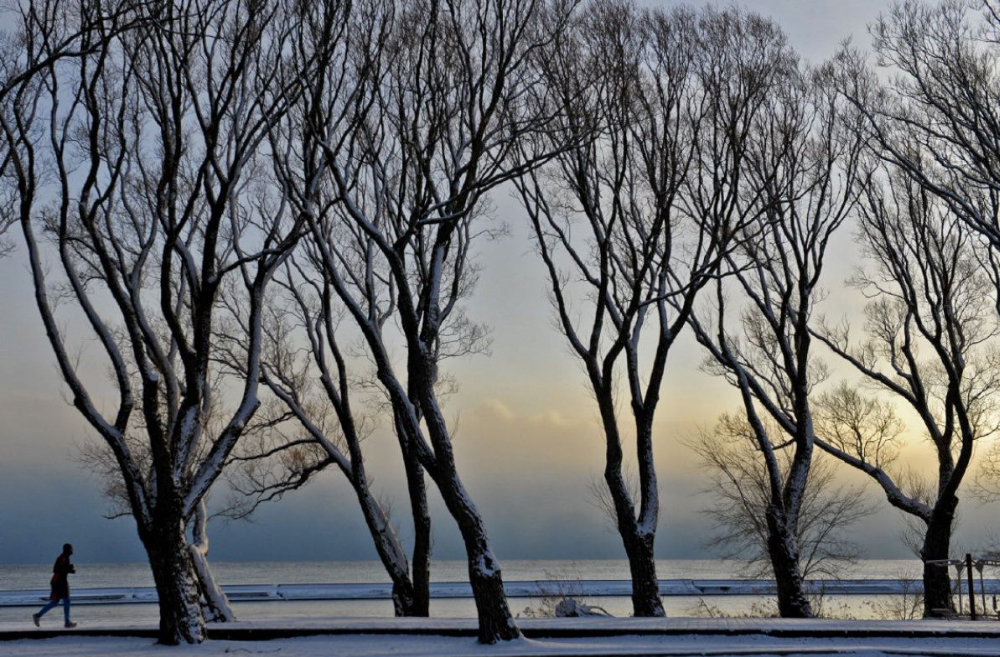
The winter wind blows cold and gives the trees a voice
and though the year be old the branches sing “Rejoice!”
“Despite the term decreed to earth in ice and mud,
we harbor still the seed of spring and guard the bud . . . .
But what these branches spoke reminded me of what
I almost had forgot: I love. I live. I love.
All that we thought was lost does not forsake us, but returns.
Beneath the frozen plot a fiery pasture burns.
Sacred SATB
Christmas Bells SATB chorus and optional keyboard or organ. Poem by John Keble (1792-1866). 1992 (2 min.)
Keble was an English Anglican priest and poet who was one of the leaders of the Oxford Movement. He is buried in Westminster Abbey.
View the score. Listen to the midi.
Wake me tonight, my mother dear that I may hear the Christmas bells, so soft and clear.
Christmas in Kentucky For SATB Chorus with optional Oboe. Poem by James Stephens (1880-1950).
For the State College Choral Society, Russell Shelley, Director
James Stephens was an Irish poet and novelist who frequently visited the United States, giving lectures and staying with his friend, W. T. H. Howe, who had a home Kentucky. To musicians, Stephens is today probably best-known as the author of the texts to Samuel Barber's Reincarnations.
View the poem and score. Listen to midi.
Two thousand times of snow declare
That on the Christmas of the year
There is a singing in the air;
And all who listen for it hear
A fairy chime, a seraph strain,
Telling He is born again,
—That all we love is born again
The Shepherd’s Tale For SAB and Keyboard. Text by Jason Charnesky from A Communion of Saints.
A lyrical, but also quite chromatic and contemporary choral version of a solo song. A perfect centerpiece for a holiday program. Published in the very progressive catalogue of Harrock Hall, which, alas, never garnered enough sales to remain viable. Now I am pleased to make it available again via this website.
Download score. Read the lyrics. Listen to midi.
Listen to Suzanne Roy and Steven Smith perform the solo voice version.
Secular SATB
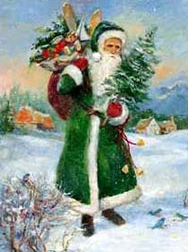
A Celtic Christmas Four Irish Carols for Mixed Chorus and Piano.
Read the poems. View the full score.
John Keegan was an Irish poet of peasant background, today best known for Come Buy My Nice Fresh Ivy and its lovely good wishes for all in the holidays.
View score. Listen to midi.
Come, buy my nice fresh ivy, and my hollysprigs so green;
I have the finest branches that ever yet were seen.
Come, buy from me, good Christians, and let me home, I pray,
and I’ll wish “Merry Christmastime” and a “Happy New Year’s Day”.
Ah, won’t you buy my ivy? The loveliest ever seen!
Ah! won’t you buy my holly? All you who love the green!
Do take a little branch of each, and on my knees I’l pray,
that God may bless your Christmas, and be with your New Year’s Day.
2. The Bells of Shandon Poem by Francis Sylvester Mahoney (1805-1866).
Priest, wit and poet known as "Father Prout", Mahoney eventually left the priesthood to devote himself to literature. The Bells of Shandon was written while he was a student in Rome and homesick for the pealing of the bells of St. Anne's Church, north of the River Lee in Cork.
View score. Listen to midi.
With deep affection and recollection I often think of the Shandon Bells
whose sounds so wild would, in days of childhood, fling round my cradle their magic spells.
On this I ponder, where’er I wander, and thus grow fonder, sweet Cork, of thee;
with thy bells of Shandon, that sound so grand on the pleasant waters of the River Lee.
I’ve heard bells chiming full many a clime in, tolling sublime in cathedral shrine;
while at a glib rate brass tongues would vibrate, but all their music spoke not to thine;
for mem’ry dwelling on each proud swelling of thy belfry knelling its bold notes free,
made the Bells of Shandon sound far more grand on the pleasant waters of the River Lee.
3. Forget Not the Angels Poem by Walter Maynard from Songs of Ireland (1880).
A lyrical prayer to our unseen protectors has a lovely minor-key melody so typical of Irish ballads.
View score. Listen to midi.
Forget not that angels are hov’ring around,
and noiselessly passing unseen to and fro.
As softly as mem’ries our homes they surround,
while watch and ward keeping o’er all here below.
4. The Wren-Boys’ Song Irish Carol from The Minstrelsy of Ireland (1897).
This rollicking conclusion to the holiday set is well-described in F.W. Horncastle’s note in Music of Ireland (1844): “On the anniversary of St. Stephen’s Day groups of young villagers carry about a holly bush adorned with ribbons and with several wrens depending from it. This is conveyed from house to house with much ceremony, the wren-boys chanting several verses. . . . Contributions are, of course, levied and the evening spent in merriment.”
Saint Stephen's Day, December 26, celebrates the first Christian martyr.
View score. Listen to midi.
The wren, the wren, the king of all birds,
Saint Stephen’s Day was caught in a furze. . . .
Sing hey! sing ho! Sing holly, sing holly!
A drop just to drink, it would cure melancholy.
Sacred TTBB
Christmas Carols for TTBB Voices and Brass Chorale.
Set II. Joy to the World; O Tannenbaum; Deck the Halls; Silent Night; Angels We Have Heard.
Set III. Santa Claus Is Coming to Town; Rudolph the Red-nosed Reindeer; Silver Bells; Frosty the Snowman; White Christmas.
Set IV. The Holly and the Ivy; We Wish You a Merry Christmas.
Set V. Il est ne, le divin enfant; D'ou viens-tu bergere; Bring a Torch, Jeanette Isabella; Noel, nouvelet.
Contact Bruce for score and parts.
God Who Made Every Living Creature (Créateur de ce nouveau monde) Edited for TTB a cappella.
Sacred chorus in French and English from the French grand opera Fernand Cortez (1809) by Gaspare Spontini (1774-1851). The opera was written to celebrate Napoleon’s conquests in Spain and was greatly admired by Berlioz. This sacred chorus from the opera is suitable for concert use or for church services to provide a short, effective, and easy piece for the men in the choir. It is a lovely lyrical prayer for peace and forgiveness and is equally effective in French or in the arranger’s English version. Appropriate for any time in the liturgical year.
Download score.
God who made every living creature
Now teach us how to live in love.
Lord, be our hope and comfort ever.
O God in heaven above, hear us.
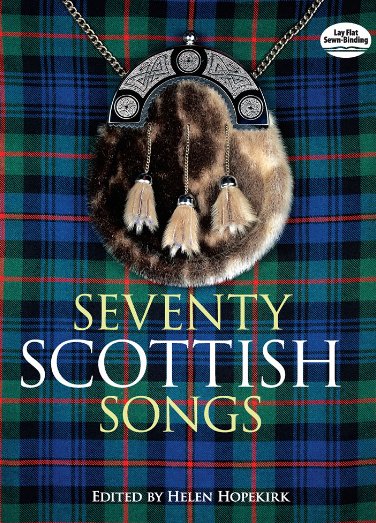
Hush-a-bye, Darling Scottish lullaby arranged for TB/TTB/TTBB and piano.
Hinshaw HMC1646
Ancient Lochaber lullaby from Songs Of The Gael by Walsh Patrick, and the verses by Lachlan MacBean (1853-1931). The accompaniment is drawn from
Seventy Scottish Songs, the only anthology of the great Scottish song composer and pianist, Helen Hopekirk (1856-1945). Bruce has made an exquisite and lyrical arrangement especially appropriate for young men. It was written for the Penn State Glee Club during a composer residency at the Hambidge Center in Georgia in 1996. The text makes the arrangement appropriate for the church during the Christmas season.
View score sample. Listen to midi.
Hushaby, darling, and hushaby, dear O,
Hushaby, darling will yet be a hero,
Lullaby, little one, bonnie wee baby,
He'll be a hero, and fight for us maybe;
Placidly, peacefully, slumber has bound him,
Angels are lovingly watching around him;
Beautiful spirits, his sorrow beguiling,
Sweetly they whisper, and baby is smiling.
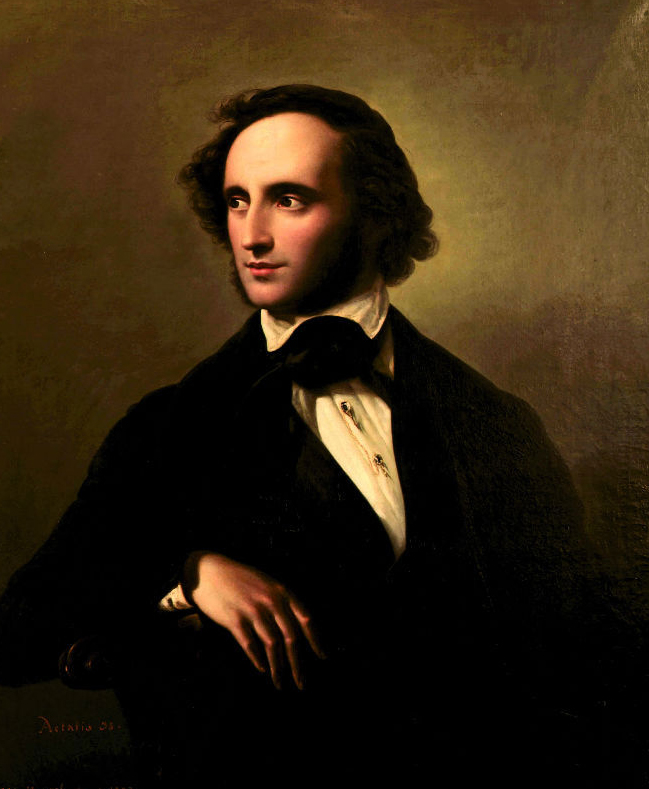
by Wilhelm Hensel, 1847
Say Where Is He Born and There Shall a Star by Felix Mendelssohn (1809-1847) from the unfinished oratorio Christus, Op. 97. Words from Matthew 2: 1-2.
Arranged for solo trio or TBB and TTBB chorus and piano or organ. Yelton Rhodes YR4903
Also available from J. W. Pepper.
A major piece to feature three soloists (optional) and the men in the choir singing Mendelssohn’s glorious chorus of the wise men following the star to Bethlehem. A wonderful lyric and dramatic way to celebrate the approaching Nativity during Advent and on Christmas eve and day.
View score sample. Listen to Say Where Is He Born midi. Listen to There Shall a Star midi.
Shepherd's Choruses Text and music by Giancarlo Menotti (1911-2007) from Amahl and the Night Visitors (1951)
Arranged for TTBB voices acappella. Contact Bruce for score.
Silent Night/On Christmas Night
Two carols arranged for TTBB and organ or piano.
Silent Night, the most beloved carol of all, with music by Franz Gruber (1787-1863), has been arranged with fresh evocative harmonies. The first verse is sung by a soloist or semi-chorus in German with the chorus supporting. Verses two and three may be sung in unison by the congregation in English. The companion piece, On Christmas Night, also known as
The Sussex Carol is a sonorous and noble a cappella version of the familiar English carol. Both are appropriate for the men in the choir on Christmas eve and throughout the holiday season. Silent Night is also available for SATB and organ or piano. The Sussex Carol is available for SATB and SSAA. See separate listings.
Download score. Listen to the Glee Club sing Silent Night with John Kenney, soloist, and organist June Miller on P.S.– Happy Holidays.
On Christmas night all Christians sing,
to hear the news the angels bring.
News of great joy, news of great mirth,
News of our merciful King's birth.
All out of darkness we have light,
Which made the angels sing this night:
"Glory to God and peace to all.
Now and forevermore. Amen."
Secular TTBB
It's Beginning to Look a Lot like Christmas Words and music by Meredith Willson (1902-1984) For TTBB and piano.
View score.
Let it Snow Lyrics by Sammy Cahn and music by Jule Styne (1905-1994) For TTBB and piano or chamber orchestra.
Contact Bruce to peruse score.
White Christmas Words and music by Irving Berlin (1888-1989) For TTBB and piano or chamber orchestra after the arrangement by Anthony Walts.
View the score. Listen to the Penn State Glee Club on P.S. - Happy Holidays.
The Wren-Boy’s Song For TTBB Chorus and Piano. Irish Carol from The Minstrelsy of Ireland (1897).
View score. Listen to midi.
Note from F.W. Horncastle’s Music of Ireland (1844): ‘On the anniversary of St. Stephen’s Day groups of young villagers carry about a holly bush adorned with ribbons and with several wrens depending from it. This is conveyed from house to house with much ceremony, the wren-boys chanting several verses. . . . Contributions are, of course, levied and the evening spent in merriment.”
Saint Stephen’s Day, December 26, celebrates the first Christian martyr.
The wren, the wren, the king of all birds,
Saint Stephen’s Day was caught in a furze. . . .
Sing hey! sing ho! Sing holly, sing holly!
A drop just to drink, it would cure melancholy.
Sacred and Secular SSAA and Treble Voices

*Santa Claus Secular chorus for 2 treble voices and piano. Lawson-Gould 70747
Words anonymous, from Christmas (1907) edited by R. H. Schauffler (1879-1964).
A joyous and dramatic saga of Santa on Christmas Eve.
View score. Listen to midi.
Verse 1 of Four VersesHe comes in the night!
He comes in the night! He silently, softly comes;
While little brown heads on pillows so white
Are dreaming of bugles and drums.
He cuts through the snow like a ship through the foam,
While the white flakes around him whirl;
Who tells him I know not, but he findeth the home
Of each little good boy and girl. . . . .

Your Guardian Angel from the opera Eve's Odds for three-part treble or children’s chorus and piano or organ.
Lyrics by Jason Charnesky from a traditional text.
This gentle and lyrical prayer/lullaby may be performed by or for young listeners.
View score. Listen to midi.
To whom God's love commends you here.
Everyday I'm by your side
To light and rule, to guard and guide.
To whom God's love commends you here.
To whom God's love commends you here.